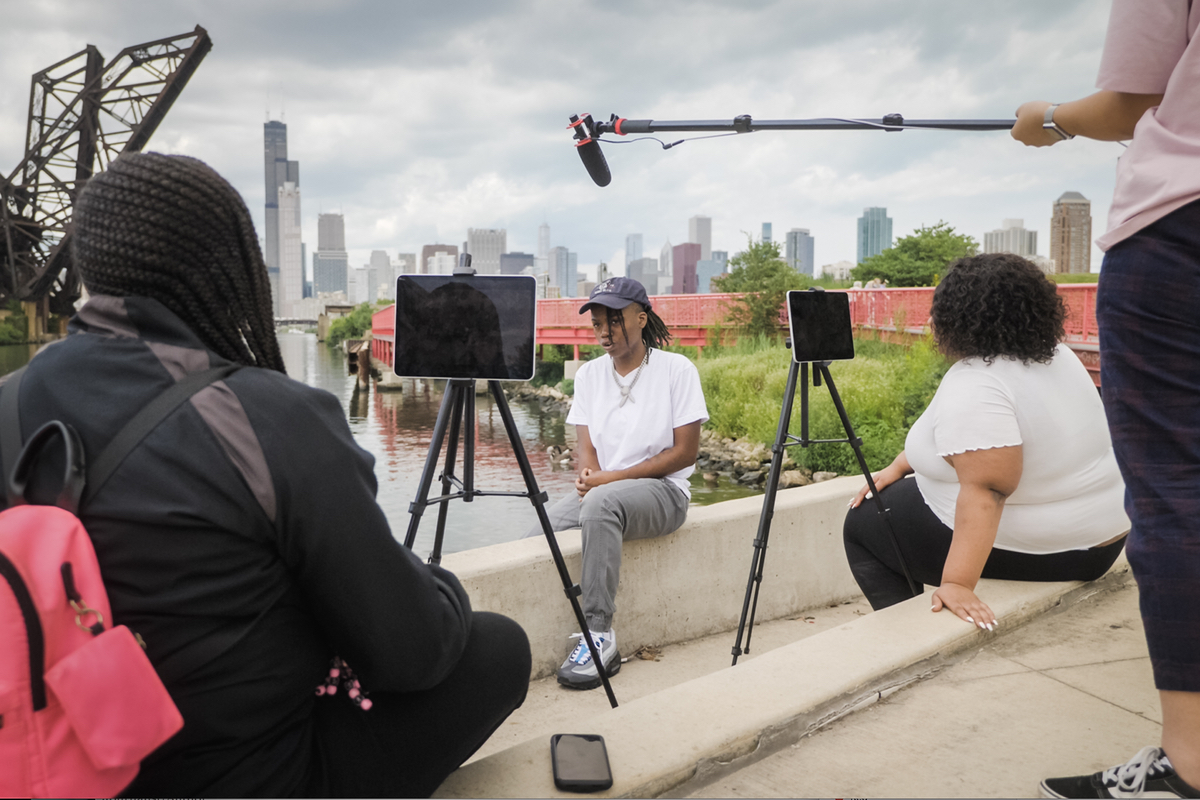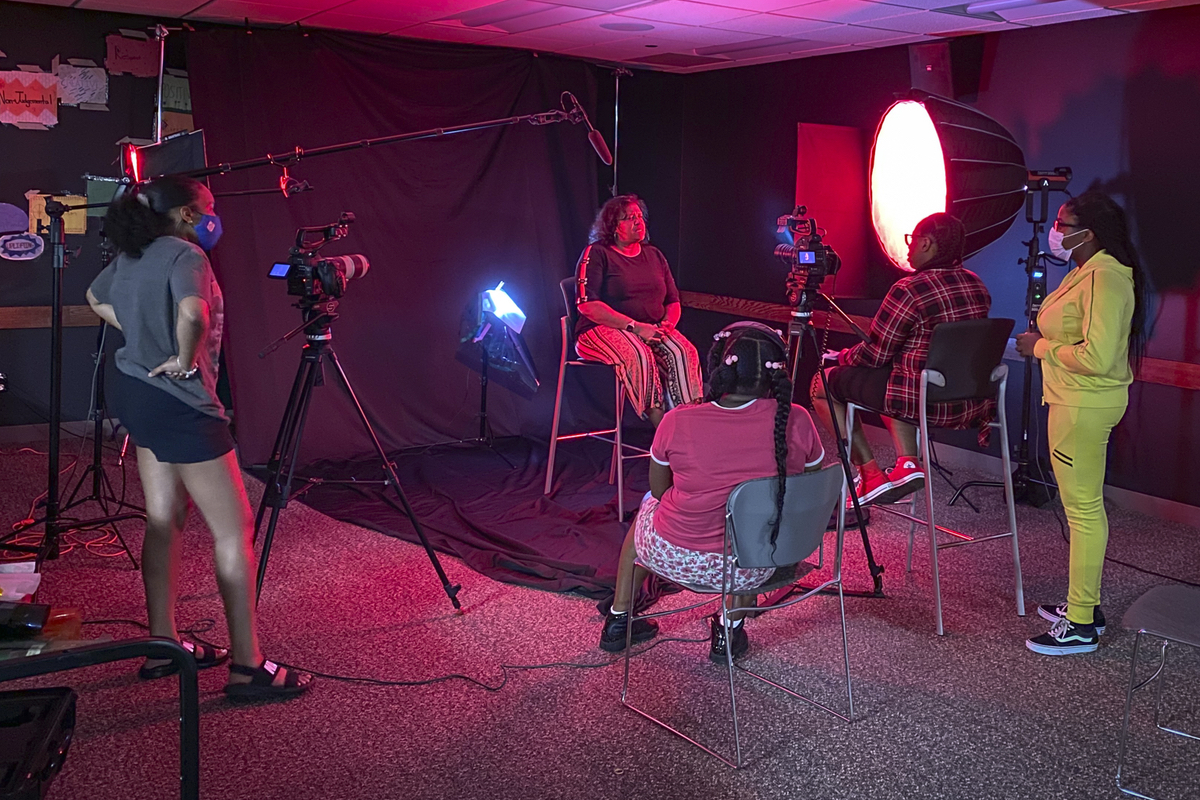 Student participants in the CHA Youth Program in Documentary Filmmaking record footage in 2020. (DePaul University/Become a Filmmaker Program)
Student participants in the CHA Youth Program in Documentary Filmmaking record footage in 2020. (DePaul University/Become a Filmmaker Program)
"To travel is to see; to return is to talk."
Few people understand the meaning of this African proverb like Liliane Calfee, the program director of the CHA Youth Program in Documentary Filmmaking. From travels that have taken her to Kenya, Paris and Senegal, Calfee is passionate about capturing lived experiences through a camera lens.
Today she is passing this excitement and skill to at-risk Chicago high schoolers, through a partnership she has navigated since 2016 between the Chicago Housing Authority and DePaul's College of Computing and Digital Media.
As her career at DePaul began, Calfee used her background in travel, filmmaking and community building to form a program that provided students with both a creative outlet and the ability to draw attention to problems such as gun violence, addiction, bullying and teen pregnancy, which frequently affect young people in Chicago and other U.S. cities.
"I wanted to do something in Chicago to focus on issues in my own, local back yard," Calfee says. "My goal was to weave together the many threads I came across in my past."
Two years later, she presented her findings to JoAnne Zielinski, an associate dean and professor in the School of Cinematic Arts. Calfee and Zielinski quickly found stakeholders and formed a bond with Chicago Housing Authority officials, including Director of Youth Opportunities Ebony Campbell, who continues to promote the program on behalf of the CHA.
 A recent recording session for the CHA Youth Program in Documentary Filmmaking. (DePaul University/Become a Filmmaker Program)
A recent recording session for the CHA Youth Program in Documentary Filmmaking. (DePaul University/Become a Filmmaker Program)
The
CHA Youth Documentary Program is open only to girls and young women to address a lack of representation of women in filmmaking. According to McKinsey and Co., women make up
only 27% of C-suite positions in the media and entertainment industry. Young women of color are also challenged by a host of other social inequities related to education, health and employment.
"Young women are cycle-breakers," Calfee says. "If we can work with young women to give them more agency and tools to succeed, that ripple effect is massive."
After brainstorming and voting on a specific topic they'd like to address, 16 high school-aged girls work together to film a documentary short over six weeks in the summer. The program has produced documentaries about a variety of subjects. In its first year of operation, students created
Rise Up, a film that followed the stories of four young women confronting violence in their communities.
Phenomenally Me examines self-exploration through hairstyles in Black communities, featuring stories of girls receiving their first braids and sew-ins.
Birthday tackles the topic of homelessness and the need to show compassion toward your peers.
"The fact that these young women are already housing-insecure themselves and wanted to shed light on those who are less fortunate is very humbling," Calfee says. "The concept was so simple and beautiful, and reminded us that every person on the street is deserving of respect."
During the COVID-19 pandemic, the CHA Youth Documentary Program was the first of 10 youth programs that CHA partners transitioned to a virtual format. It has now developed sections for students interested in game and graphic design, movie and TV scripts and photography. Each section is sponsored and overseen by a faculty mentor at DePaul, along with several graduate student assistants chosen through a rigorous process of referrals and interviews.
"I'm looking for someone that's not only hard-working and talented, but also has a really open spirit and works well with others," Calfee says.
When asked for a piece of advice she would give to young female filmmakers, Calfee says that sincerity is key to creating meaningful art.
"Always start from what you know," she adds. "Your most powerful and authentic stories will always connect with your lived experiences."
To learn more about the CHA Youth Documentary Program, visit the
CHA+DePaul Youth Partnership website.